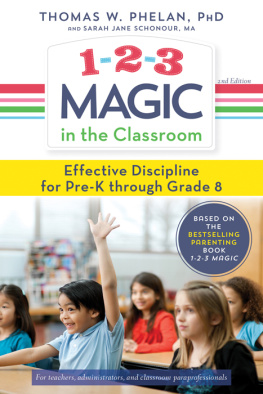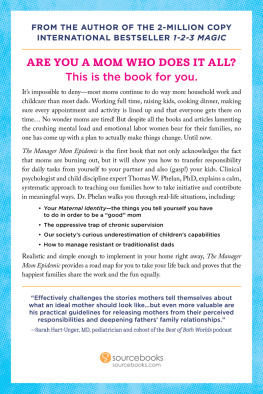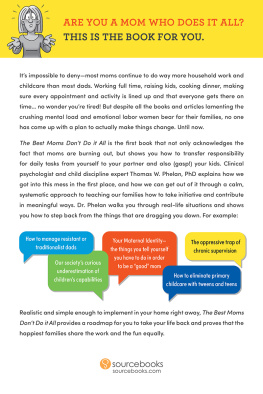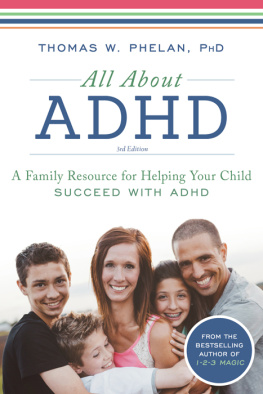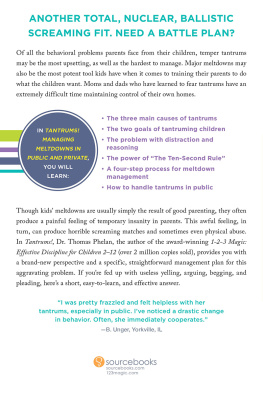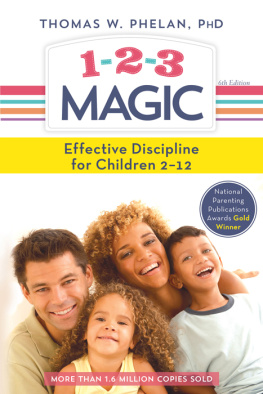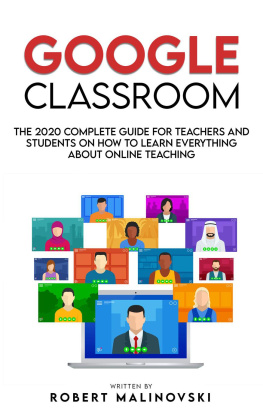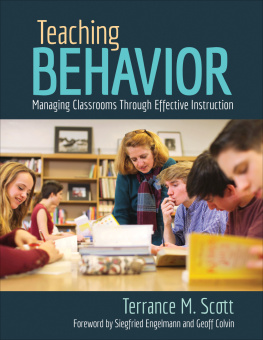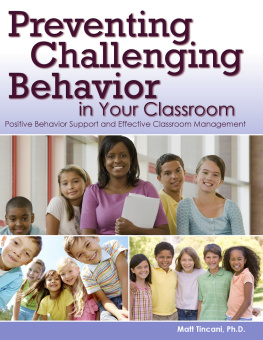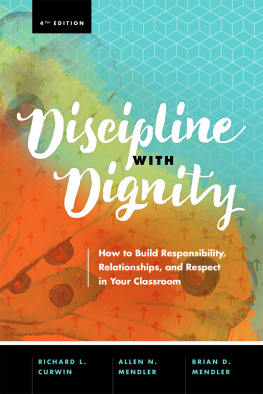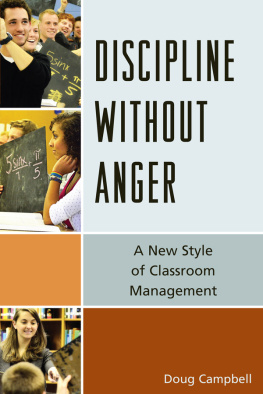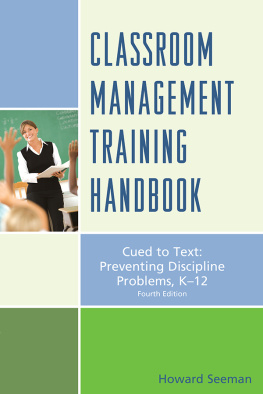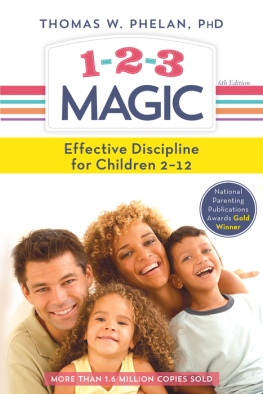Copyright 2004, 2016 by ParentMagic, Inc.
Cover and internal design 2016 by Sourcebooks, Inc.
Cover design by Erin Seaward-Hiatt
Cover images Christopher Futcher/Getty Images
Sourcebooks and the colophon are registered trademarks of Sourcebooks, Inc.
All rights reserved. No part of this book may be reproduced in any form or by any electronic or mechanical means including information storage and retrieval systemsexcept in the case of brief quotations embodied in critical articles or reviewswithout permission in writing from its publisher, Sourcebooks, Inc.
This publication is designed to provide accurate and authoritative information in regard to the subject matter covered. It is sold with the understanding that the publisher is not engaged in rendering legal, accounting, or other professional service. If legal advice or other expert assistance is required, the services of a competent professional person should be sought. From a Declaration of Principles Jointly Adopted by a Committee of the American Bar Association and a Committee of Publishers and Associations
This book is not intended as a substitute for medical advice from a qualified physician. The intent of this book is to provide accurate general information in regard to the subject matter covered. If medical advice or other expert help is needed, the services of an appropriate medical professional should be sought.
Published by Sourcebooks, Inc.
P.O. Box 4410, Naperville, Illinois 60567-4410
(630) 961-3900
Fax: (630) 961-2168
www.sourcebooks.com
Originally published as 1-2-3 Magic for Teachers in 2004 by ParentMagic, Inc.
Library of Congress Cataloging-in-Publication Data
Names: Phelan, Thomas W., author. | Schonour, Sarah Jane, author.
Title: 1-2-3 magic in the classroom : effective discipline for pre-K through grade 8 / Thomas W. Phelan, PhD, and Sarah Jane Schonour, MA.
Description: Second edition. | Naperville, Illinois : Sourcebooks, Inc., 2016. | Includes index.
Identifiers: LCCN 2015050122 | (pbk. : alk. paper)
Subjects: LCSH: Classroom management.
Classification: LCC LB3013 .P455 2016 | DDC 371.102/4--dc23 LC record available at http://lccn.loc.gov/2015050122
CONTENTS
PREFACE
THE VERY FIRST SEMINAR for 1-2-3 Magic: Effective Discipline for Children 212 took place at a local Holiday Inn on a cold April day in 1984. It was attended by twenty-eight parents and a few teachers. Since that day, millions of parents, teachers, teacher aides, school administrators, grandparents, camp counselors, therapists, mental health professionals, and pediatricians have used 1-2-3 Magic to solve child discipline issues. Many more adults have learned the program through our books, videos, and audios, and our unit sales have crossed the 1.6 million mark. We now have Leader Guides for parents and for teachers, Spanish books and videos, and more than twenty foreign translations.
The reasons for the success of 1-2-3 Magic are simple. The program is easy to learn, and it works. You can learn it one day and start it the next. There really is no magic involved, but we have had many delighted schoolteachers and parents swear that the 1-2-3 program works like magic. And now, after all these years, we are hearing from people who raised and taught their childrenfrom the ground upon 1-2-3 Magic , and these folks often thank us for turning their lives around.
At ParentMagic, Inc., we want to make a dramatic and positive difference in the lives of the people who use our program. We want teachers to have energetic but orderly classrooms where children learn to respect one another and respect their instructors. We want moms and dads to enjoy their children, and to be able to discipline their kids with gentleness, firmness, and decisiveness. We want children to grow up happy, competent, and able to get along with others.
Why an Edition for Teachers?
There are some important distinctions between how a parent would implement 1-2-3 Magic and how a teacher might use the program. As far as we know, few parents have to simultaneously manage the behavior of twenty-five children. Therefore, at the request of many teachers, we developed a book with a school and classroom focus. In writing this book, we have had a great deal of valuable assistance from experienced educators. Special thanks are due to our contributing writers, consultants, and reviewers: Cristina Dougherty (), Cheryl Hauser, Megan Law, and Shilpi Patel. The contributions and feedback of these individuals are deeply appreciated.
Like the 1-2-3 Magic parenting program, 1-2-3 Magic in the Classroom organizes the classroom discipline strategy into three separate and critical steps:
Managing undesirable behavior
Encouraging good behavior
Strengthening your relationship with students
These three steps are, of course, interdependent, and they are dealt with in this book in the order above.
Keep in mind, though, the fundamental concept of preventive discipline in the classroom: a student who is doing his work will not be a behavior problem. As much as possible, effective teachers structure work, engage students in learning, and monitor progress so that the need for corrective discipline is minimal.
How to Use This Book
1-2-3 Magic in the Classroom describes some straightforward and very effective methods for managing the school behavior of children from the ages of approximately two to fourteen. To get the best results, keep in mind the following:
The methods should be used exactly as they are described here, especially with regard to the No Talking and No Emotion rules.
If there is more than one adult in the classroom on a regular basis, both adults should use the techniques described.
At times, it may be helpful for teachers to get parents and families involved in using the 1-2-3 Magic program. Grandparents, babysitters, and other caregivers have also found the 1-2-3 Magic program very helpful in managing young children. In addition, these days more and more grandparents are raising their grandchildren themselves, and a teachers suggestion of the program may be a lifesaver for these older adults.
Note that illness, allergies, and physical pain can cause and aggravate behavioral and emotional difficulties in children. A teacher may want to ask the parents about any health issues that may affect their child.
Psychological Evaluation and Counseling
Teachers should not make diagnoses regarding the psychological health of their students. However, we encourage a dialogue among teachers, parents, school psychologists, and others regarding the well-being of any child. In fact, the 1-2-3 Magic program can assist teachers in deciding when it might be time to discuss with a parent the possibility of a referral to a school psychologist, school social worker, or special services team.
We hope 1-2-3 Magic in the Classroom helps you establish the kind of classroom environment you want andequally importantallows you to look forward to each day at school with your students.
INTRODUCTION
Teaching: Not for the Faint of Heart!

